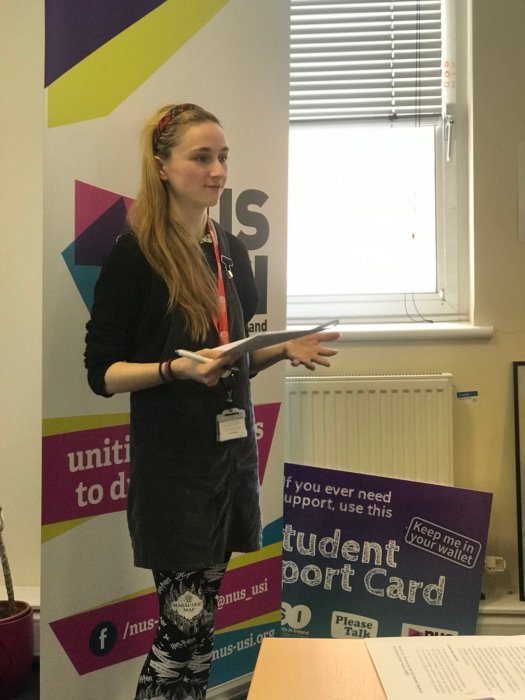The period immediately after someone has made an attempt on their own life can be a very scary, confusing, and stressful time for all involved; one where friends. family, or even healthcare professionals might be wondering what to say and which questions to ask (or avoid). This can lead the people connected to someone who has made an attempt on their life to feel extremely anxious in the immediate aftermath of the event; a feeling only heightened by the fear that saying both the ‘wrong thing’ and ‘saying nothing’ might lead the person who has attempted suicide to try again. It is for this very reason – the not knowing how to respond – that some people might avoid engaging with the person at all, whilst others may turn to bombarding them with a million and one questions. Thus, at a time where people who have experienced suicidal crisis say that “honest and open communication is key“, not knowing what to say can, in this way, lead those closest to someone who has attempted suicide to subconsciously change the way they interact with said individual, or to avoid interaction altogether. It is this anxiety I hope to alleviate somewhat by writing this blog piece.
Notably, whilst much could be written on how to deal with someone in suicidal crisis (some of which I have written on here), this post focuses on the immediate aftermath of a suicide attempt, from the perspective of the person (the ‘patient*’) who has survived it. I hope it will shine some light on a sensitive and challenging period for those whom might experience it in the context of their professional lives (e.g. medical professionals), personal lives (e.g. via a loved one or colleague), or whom may simply wish to understand this important issue better for another reason.
Of course, if a person has attempted suicide, the first priority should be ensuring that the patient is stable (both physically and emotionally). This may require intervention by medical and/or mental health professionals, the emergency services (e.g. ambulance, police), or simply those nearby. Once the patient is no longer in a critical state and has been dealt with medically, however, it is likely then that a social worker, psychiatrist or other professional with training in mental health will come round to see the patient and ask ‘How are you feeling now?’. This may either be in hospital or the patient’s home, depending on the severity of their injuries. Ideally, the patient will be seen within just a few hours of stabilising after the event has occurred and they have regained lucidity.
The question ‘How are you feeling?’ is a seemingly innocuous one but this belies the true significance of the question, especially when asked by a medical professional. I understand why clinicians and social workers feel obliged to ask this question; they need to assess imminent risk, in order to make appropriate decisions about the patient’s future care and implement any safety measures that might need putting in place. As a result, however, the question ‘How are you feeling?‘ can feel like quite a loaded one in the patient’s eyes, especially if they are scared they might be detained under the Mental Health Act or prevented from leaving hospital. These power dynamics may be even more unequal if the patient is already in state care, such as in an inpatient psychiatric unit or prison, where they may fear losing even more of their liberties or being isolated from their peers if they express suicidal thoughts or feelings.
Of course, family members might also feel the urge to ask their loved one ‘How are you feeling?’ following a suicide attempt, possibly out of a sense of culpability, compassion, or a need for reassurance. Again, this might feel like a somewhat impossible question to answer for the person who has attempted suicide, depending on their relationship with their family members: If they are still feeling acutely sad or hopeless, for example, they may want to shield their loved ones from these feelings out of guilt or shame. Alternatively, if their family have particularly strong views on suicide, the patient might not want to fully involve them in what has happened out of fear of ostracism. This can then lead to further feelings of disgrace or isolation.

So, what on earth should I say?
Talking to people who have survived a suicide attempt, the one thing that comes across with a resounding thwack is that communication and transparency are key: “As someone who has been in the position a few times, I know the drill and exactly what to say to go home, so if I’m just having questions reeled off at me with no attempt to really engage or empathise I will shut off. What makes it harder is also the general lack of transparency about outcomes. I know that professionals who I have felt supported by in these situations are honest with me about the decisions they need to make and their concerns. In my area, the Crisis and Home Treatment Team work closely with Psych Liason at the general hospital, with one team member on shift there every night. That meant on one occasion I was able to speak to a lady I knew from working with her previously which made talking and being more honest easier. She herself is very frank about things which I find most agreeable. That approach makes me feel able to be honest and talk candidly – when they properly engage, they can take the whole conversation into account…. if they’re doing a tick box exercise they’ll put red flags next to honesty (about feeling suicidal) without any other reflection, when in fact honesty is a really positive sign”.
What really stands out from this person’s experience of talking to professionals following a suicide attempt is the need for clear and honest communication, especially about the decisions that might be made with regards to their future care. It is often the fear of consequences (e.g. detention under the Mental Health Act, losing one’s friends or family) or the shame of the stigma associated with suicidal thoughts and feelings that forces suicidal people into the shadows and discourages help-seeking behaviours. This is why transparent and empathetic communication between all parties is key.
Another thing that resonated among the people I spoke to for this blog was that coming out the other side feeling isolated or alone is not helpful; in fact, it may even be detrimental to that person’s recovery. Unfortunately, some people may consciously or unconsciously ostracise a person who has attempted suicide, due to fear, ignorance, confusion, anger, or even sadness over what has happened. Similarly, someone who has survived a suicide attempt may isolate themselves due to the shame, embarrassment or guilt over what has happened. The word ‘suicide’ itself is an extremely loaded term, with a lot of stigma attached to it. One of our last taboos, I find that most people (even clinicians and academics) ‘clam up’ when I tell them I am a suicide researcher; however, this shutting down of the conversation around suicide is the very opposite of what patients and those who lose a loved one to suicide really need.
So, to be clear, can I ask anything, or should I avoid questions altogether?
Of course, it is perfectly ok to ask a person who has survived a suicide attempt how they are feeling; in fact, it may even save a life by opening up the dialogue a little. The key here is how you ask the question, especially if there may be an unequal power dynamic between you and the other person involved. If this is the case, ensure you listen carefully and empathetically with the person who has attempted suicide; really engage with what they are saying and how they are saying it, paying attention to their body language. If you have to make decisions about their care, be honest about this from the beginning and be sensitive to the fact that this may make disclosure more difficult. No matter what you ask, or don’t ask, speak to the person candidly but with compassion. Above all, try not to reduce them to simply being someone who has survived a suicide attempt – they are still a human being with hopes and dreams, likes and dislikes, fears and worries. Treat them as whole.
*Although ‘patient’ is arguably a medical term and might be viewed by some as potentially reductionist or dehumanising as a result, I am in no way ascribing to the medical model of suicide and use the word ‘patient’ in a very loose sense here.



